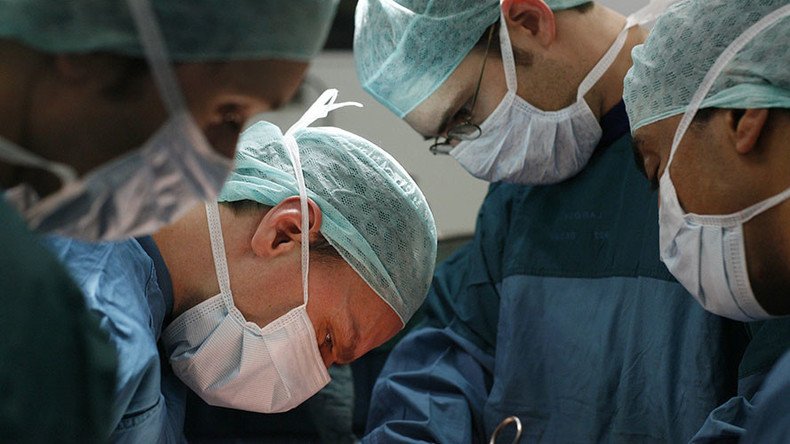‘We’ll try to bring patients back to life’: Surgeon plans to ‘revive’ frozen human brains by 2020

The first human head transplant will take place in less than a year, to be followed by the world’s first transplantation of a cryogenically preserved brain in three years’ time. That’s according to ambitious neurosurgeon, Sergio Canavero.
The Italian doctor shared the preliminary timetable after announcing to the world four years ago that he was planning the first transplant of a human head.
READ MORE: $11mn, 36-hour historic head transplant to be carried out in China in 2017
Canavero told German magazine Ooom that the procedure will take place in China in ten months. He also confirmed that the first head transplant patient would be Chinese, and not Russian Valery Spiridonov, as previously expected.
Spiridonov, who suffers from the extremely rare, progressive Werdnig-Hoffmann disease, made headlines when he volunteered for the life changing operation.
Canavero said the final decision on the candidate will only be made immediately prior to the operation, which will be performed by surgeon Xiaoping Ren of Harbin Medical University.
Revolutionary: Russian man to undergo first head-to-body transplant http://t.co/UO0JAQ8nygpic.twitter.com/VU1RRJFFFa
— RT (@RT_com) April 11, 2015
The controversial neurosurgeon has also boldly claimed that he’s already working on plans to reawaken a cryogenically frozen brain and transplant it into a donor body within three years.
“We will try to bring the first of the company’s patients back to life, not in 100 years. As soon as the first human head transplant has taken place, i.e., no later than in 2018, we will be able to attempt to reawaken the first frozen head,” he said.
Canavero said the US cryonics company Alcor Life Extension Foundation could be a potential source of frozen brains, although the company told Gizmodo that it had had no contact with the doctor.
“It is not yet possible to revive human brains cryopreserved with present methods. Revival of today’s cryonics patients will require future repair by highly advanced future technology, such as molecular nanotechnology,” the company said in a statement.
Canavero believes his groundbreaking experiments could also throw light on more existential questions.
“The head transplant gives us the first insight into whether there is an afterlife, a heaven, a hereafter, or whatever you may want to call it, or whether death is simply a flicking off of the light switch and that’s it,” Canavero said.
He goes one step further by suggesting that his work could shake our entire conception of the world and remove the need for religion.
“If we are able to prove that our brain does not create consciousness, two things will happen: religions will be swept away forever,” and “secondly, we will ask ourselves what the meaning of life is,” he said.
READ MORE: Cryogenics breakthrough sees tissues ‘unfrozen’ at up to 200 degrees a minute – study
The Turin based doctor is also part of a team that created a number of two-headed rats.
Finally! Two-headed rats! https://t.co/lvGDMqP7tZ
— Greg Pollowitz (@GPollowitz) April 28, 2017
The heads of smaller rats were transplanted onto the necks of larger rats as part of a study published recently in CNS Neuroscience and Therapeutics.
A third rat was used in each experiment to provide the blood supply. The rats survived for an average of 36 hours after each trial.
The study follows a procedure Canavero conducted last year in which he severed a dog’s spinal cord and then reconnected it.
“Despite these exciting animal experiments, the proof of the pudding rests in human studies,” he wrote at the time.
“The only ethical – and expeditious – way is to test GEMINI in brain dead organ donors before explanation during a six-hour window during which the cord is severed,” he added.












